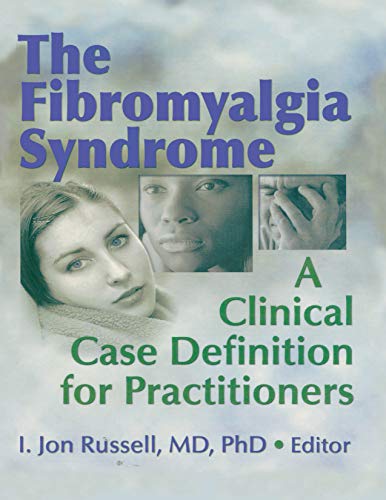The National Fibromyalgia Association estimates that about 10 million Americans and approximately 3% of the population worldwide suffer with fibromyalgia syndrome, yet the criteria used by doctors to diagnose fibromyalgia is 14 years out of date. The Fibromyalgia Syndrome examines the expert consensus developed by the Health Canada Fibromyalgia Syndrome Committee with the goal of helping practitioners distinguish FMS from other syndromes/illnesses that exhibit chronic body pain. The text encompasses a very broad scope of FMS, including its clinical manifestations, diagnosis, and treatment.
This resource provides you with:
- a new approach to case definition
- proposed research to validate the new case definition
- a practical approach to assessment of severity
- empathetic management
- what is known about pathogenesis
This book meets the growing need for up-to-date information about objective abnormalities in people with FMS and for an integrated approach to its diagnosis and management by primary care physicians. The Fibromyalgia Syndrome will also encourage the scientific and academic communities to actively research the clinical care of people with FMS, ensuring that more effective therapies and medications will be available in the future. These guidelines present a flexible framework that includes the 1990 American College of Rheumatology (ACR) criteria and encompasses more of the potential symptomatic expression of patients.
The Fibromyalgia Syndrome provides several appendices to help you find crucial information at a moment’s notice, including:
- a glossary of acronyms
- a list of both commonly and rarely seen signs and symptoms of FMS
- a fibromyalgia syndrome clinical worksheet
- differential diagnoses of the symptoms of FMS
- a Symptom Severity and Hierarchy Profile (SSHP) worksheet
- the Pain Visual Analog Scale (PAIN VAS) and Body Pain Diagram
- and more
The Fibromyalgia Syndrome offers proposed methods and studies to develop and validate the clinical case definition to ascertain its applicability to the clinical practice setting. With better education and increased awareness of FMS, physicians can make a diagnosis earlier in the patient’s course and initiate valuable outpatient care, lessening expensive hospitalization and associated costs.











